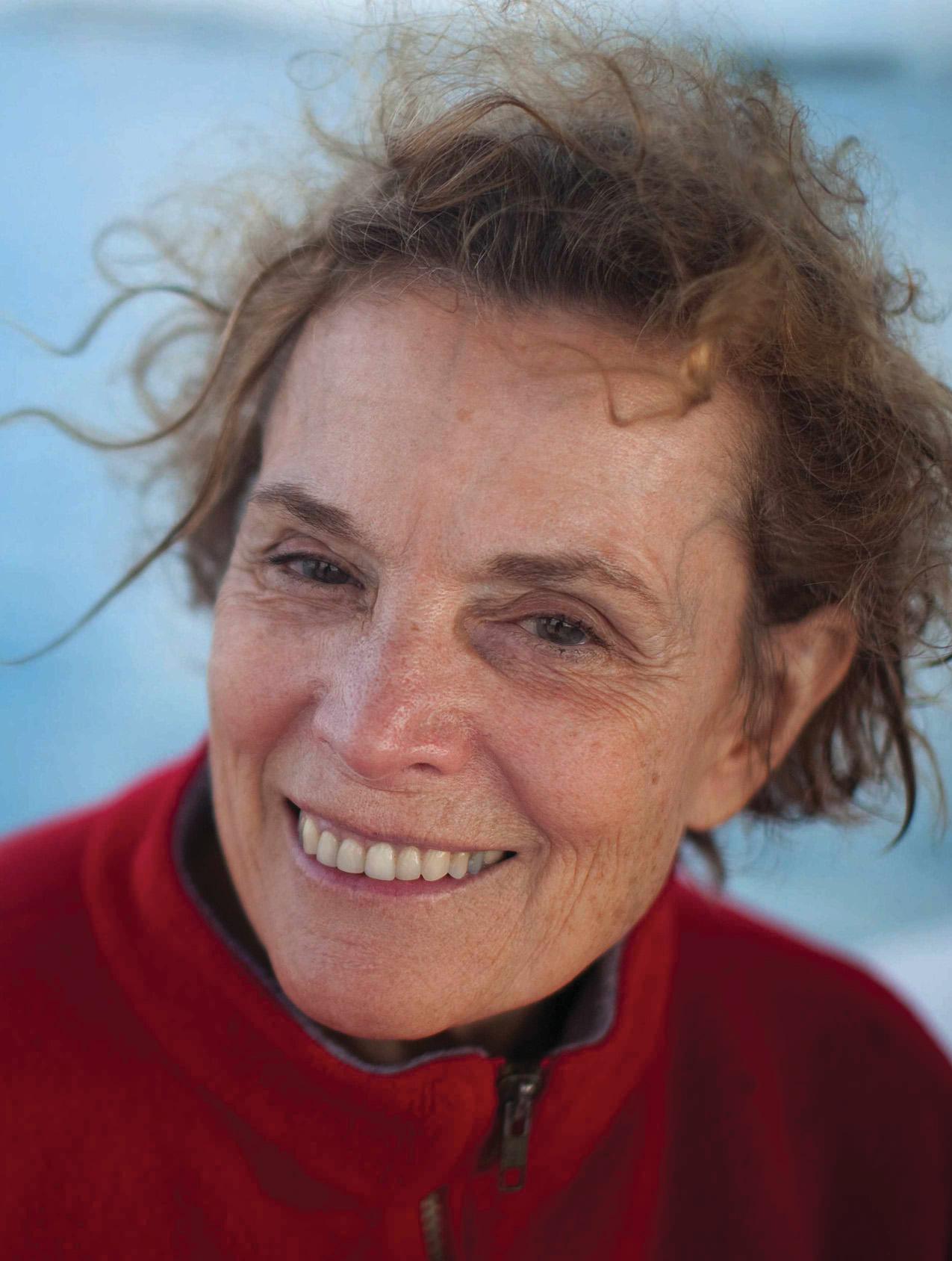Prøve GULL - Gratis
Mission Blue
BBC Wildlife
|June 2024
Sylvia Earle has dedicated her life to marine conservation; she tells BBC Wildlife why protecting the ocean is essential to all life on earth

WHEN SHE WAS BORN IN 1935, no-one had ever seen the Earth from space. Since then, American marine biologist Sylvia Earle has led more than 100 ocean expeditions and spent more than 7,500 hours underwater. She was the US National Oceanic and Atmospheric Administration's (NOAA) first female chief scientist; has been a National Geographic Explorer since 1998; and was Time Magazine's first Hero for the Planet. Currently aged 88, she still travels the world furthering her conservation work.
Like David Attenborough and Jane Goodall, whose careers have run parallel with hers, Sylvia has become a conservation legend. As I wait to meet her, an excited pool of people gathers, hoping for a moment, a word or a photo with 'Her Deepness' - a nickname she was given in 1989 by The New Yorker magazine that's stuck like a limpet ever since.
Sylvia has been a champion for nature her entire life. "I mean, I can't remember when I haven't," she says, "Even as a child, it just seemed logical." She remembers being on holiday in New Jersey, aged around three, and hearing and smelling the sea before she saw it. She promptly got knocked over by a wave when she turned her back.

Children question everything. Sylvia has kept this inquisitiveness and dedicated her career to following her curiosity. It's in our nature to explore, she explains; wanting to know more about the world around us is part of being human.
Denne historien er fra June 2024-utgaven av BBC Wildlife.
Abonner på Magzter GOLD for å få tilgang til tusenvis av kuraterte premiumhistorier og over 9000 magasiner og aviser.
Allerede abonnent? Logg på
FLERE HISTORIER FRA BBC Wildlife

BBC Wildlife
“Our canoe was nearly sunk by a hippo”
Hippos in Niger
3 mins
March 2026

BBC Wildlife
Why does Australia have such weird animals?
AUSTRALIA IS A LONG WAY FROM anywhere and has been for a very long time. The landmass definitively separated from the supercontinent of Gondwana around 40 million years ago and, since then, has existed - as a big blob in the middle of an even bigger ocean - in glorious geographical isolation.
2 mins
March 2026

BBC Wildlife
Which country has the fewest native animals?
AT AROUND 61KM² SAN MARINO, IN Europe, is one of the world's smallest countries. Entirely landlocked, it is surrounded by Italy.
1 min
March 2026

BBC Wildlife
Why do some species sunbathe?
RING-TAILED LEMURS ARE FAMED FOR their 'sun-worshipping' posture, legs and arms outstretched to reveal their pale bellies. Like humans, they do it to save energy and boost health. Sunlight is necessary to many bodily processes. As a source of vitamin D it's required to maintain bone and muscle health. It is also related to the production of serotonin, the chemical that regulates mood, sleep and stress response.
1 mins
March 2026

BBC Wildlife
ALL YOU EVER NEEDED TO KNOW ABOUT THE Piranha
PIRANHAS HAVE A REPUTATION as some of the most dangerous freshwater hunters: terrifying predators capable of devouring a large mammal in mere minutes.
3 mins
March 2026

BBC Wildlife
EAGLES LANDING
Eagle owls were once heavily persecuted. But thanks to a new initiative, these magnificent birds are reclaiming a wetland home
7 mins
March 2026

BBC Wildlife
Do wild guinea pigs exist?
GUINEA PIGS, WHICH ARE NOT pigs and not from Guinea, are domesticated rodents that do not exist in the wild.
1 min
March 2026

BBC Wildlife
SNAP-CHAT: THE INSIDE WORLD OF WILDLIFE PHOTOGRAPHY
Boris Belchev on birds, batteries and battling bears with pop music
3 mins
March 2026

BBC Wildlife
Does anything live in the Bermuda Triangle?
THE BERMUDA TRIANGLE, IN THE NORTH Atlantic Ocean, has become infamous for the planes and ships that are said to have vanished without a trace while travelling through the area.
1 min
March 2026

BBC Wildlife
Do animals have different blood types?
HUMANS HAVE FOUR MAIN BLOOD GROUPS: A, B, AB and O.
1 min
March 2026
Listen
Translate
Change font size
